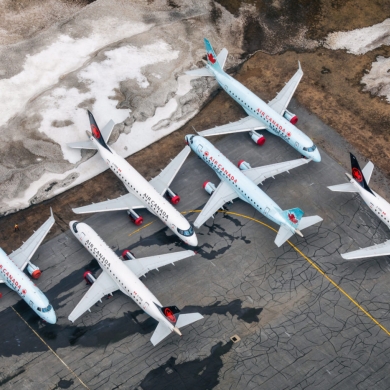15 avril 2020
Canadian space startups fight to survive during COVID-19 pandemic
As the COVID-19 pandemic took hold and the government reacted to help businesses across the spectrum in Canada, startups and pre-startups are struggling to find adequate support. The Federal and provincial governments have slowly gained respect for their reaction to the economic impact of the coronavirus pandemic. Their original programs, criticized for being unfocused and insufficient, have given way to the Canadian Emergency Response Benefit (CERB) and Canadian Emergency Wage Subsidy (CEWS) programs that provide support to both laid-off employees and to companies that have lost revenue due to the crisis. The Wage Subsidy covers 75% of wages for many companies that have lost a certain percentage of revenue, which used to be 30% but has been revised to 15% recently. Coupled with governmental lending programs, this is a welcome change that is helping to prevent business closures and layoffs at many Canadian companies. There is still a gap in the programs however: Startups and pre-startups. This is a segment of the ecosystem that can't be ignored. Startups and pre-startups are important to the country's innovation engine. The Wage Subsidy formula, significantly, is based on a percentage of revenue. For most startup businesses that are still in the growth stage, there's little-to-no revenue to be lost. They have expenses, contracts, suppliers, and most especially employees, just like any other company but they're paying for those things using investment money, debt, and even founders' savings. We learned from several startups that are graduates from the Creative Destruction Labs' inaugural space stream, that can be a big problem. SpaceQ spoke with Reaction Dynamics' founder and CEO, Bachar Elzein, about the problem. He said that this is a serous danger for Canadian startups. They can't show lost revenue because they didn't have revenue, but the process of acquiring and retaining investors has become quite a bit more complex in the wake of the coronavirus crisis. Going to meetings with investors is nearly impossible, and investors are skittish thanks to the economic uncertainty in most of the world's economy right now. Getting new investment is unlikely at best. Debt is a problem too. Elzein said that lenders — including federal and provincial lenders — want to see a variety of assets: revenue, materials, contracted sales, equity, and anything else that can be used to pay off the debt. Some new businesses can proffer these things — but technology-focused startups' greatest asset is their people and their technology, and that may not be easily expressed in ways that will satisfy lenders. Elzein had looked into lenders, but even provincial and federal lenders seem to be reluctant to help companies like Reaction Dynamics, despite their heavily-promoted emergency lending programs. Elzein recognizes that Reaction Dynamics is better off than most. While acquiring new investors is challenging, their existing investors have been supportive. Elzein said that “we can't thank our investors enough” for their assistance, which has helped keep Reaction Dynamics going. The Canadian Space Agency has also been of great help, working with Reaction Dynamics to ensure that they get grant money as quickly and efficiently as possible. They've retained all of their team, and they've been productive: while rocket testing is difficult-to-impossible right now, other tasks can be done (and are being done) from home. The company is also pivoting to activities that will help with the current pandemic. Reaction Dynamics will be shifting its production capacity towards producing face shields and medical equipment. With Montreal emerging as a key centre in Canada for fighting the coronavirus, Elzein and his team want to do whatever they can to help. They've been gratified to learn that, in Elzein's words, “working with rockets has helped us work with hospitals”, and the revenues from these activities will help them going forward. But Elzein recognizes that other companies haven't been so fortunate. He knows that other companies in the industry haven't been so fortunate, and have followed once-promising space pioneers like OneWeb in having to go into bankruptcy. He calls on the federal government to close this wage support gap, believing that “the banks should be more lenient about these debts”. SpaceRyde founder Saharnaz Safari agreed. In a statement to SpaceQ said that “even though SpaceRyde has brought direct foreign investment to Canada and has created full-time jobs for Canadian engineers, our company does not qualify for CEWS”, and that “the economic situation has made us re-visit our growth and hiring plans for this year.” It is possible, even likely that these programs will change. The situation is dynamic, and the government is hurrying to replace non-viable support programs with ones that better suit the situation on the ground. But, for now, startups like Reaction Dynamics will have to do what they can to survive, and hope that after the crisis is over, they'll be able to continue where they left off. Another issue which affects a lot of businesses including startups, is the Scientific Research and Experimental Development (SR&ED) tax incentives. The government has been slow to provide refunds. In an open letter to the Prime Minister and the government, the CATA Alliance called on the government to “immediately release the $200 million in filed and backlogged Scientific Research and Experimental Development (SR&ED) claims.” With files from Marc Boucher. https://spaceq.ca/canadian-space-startups-fight-to-survive-during-covid-19-pandem/








